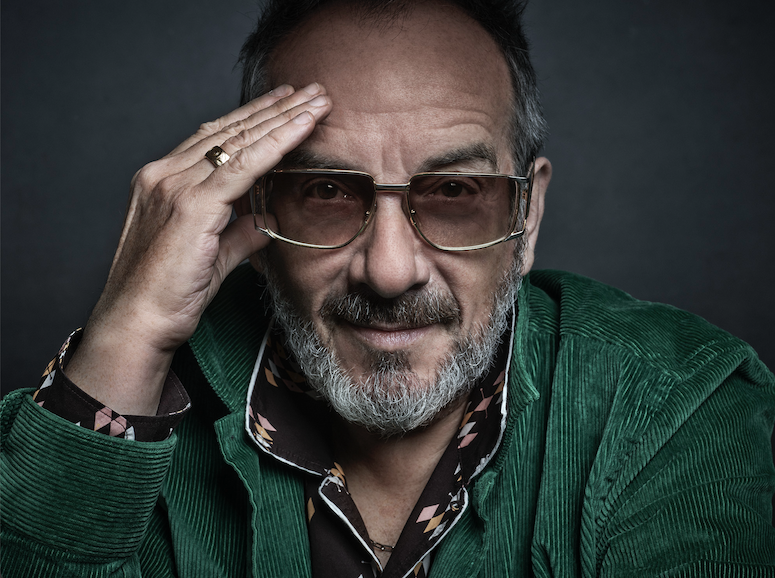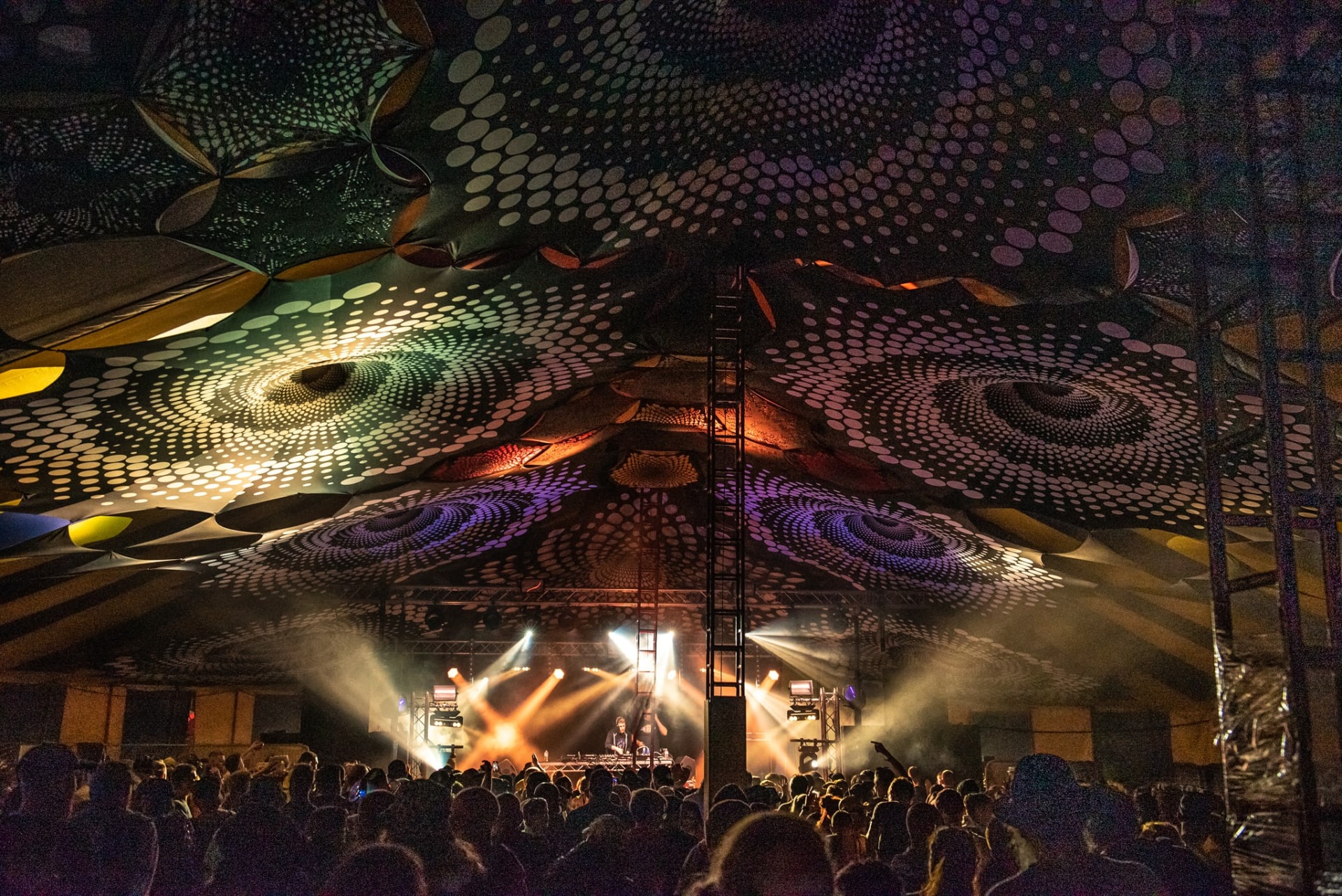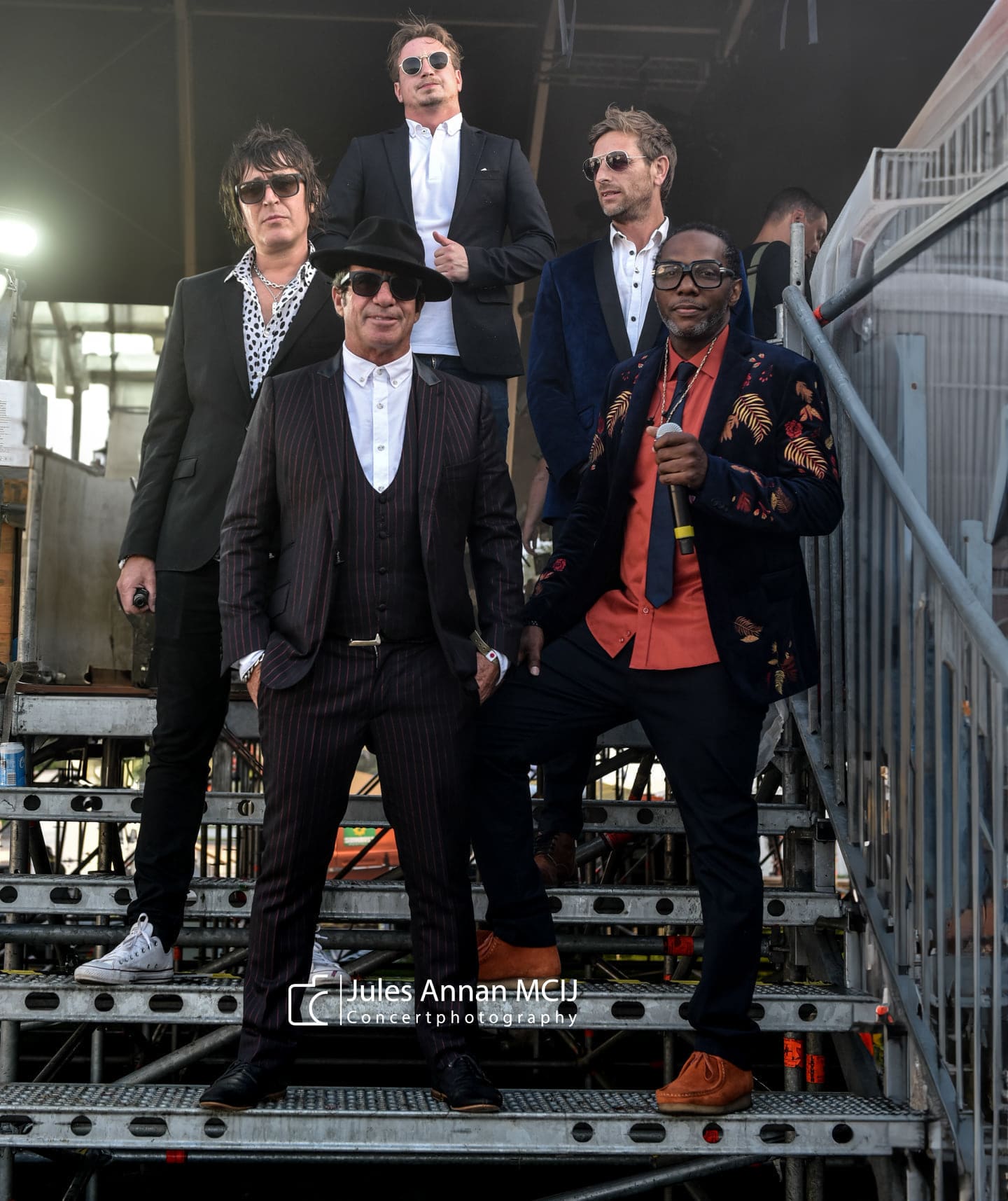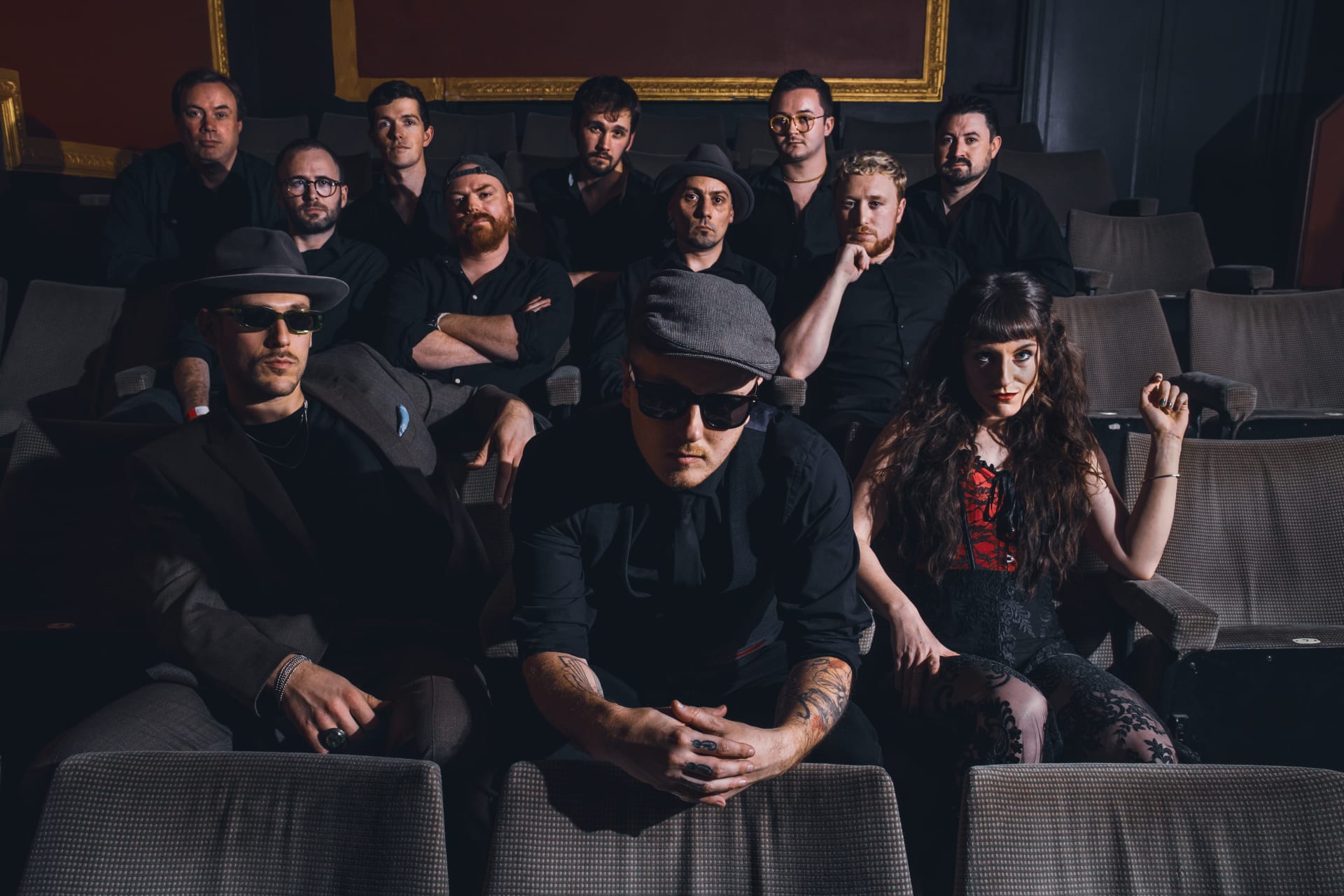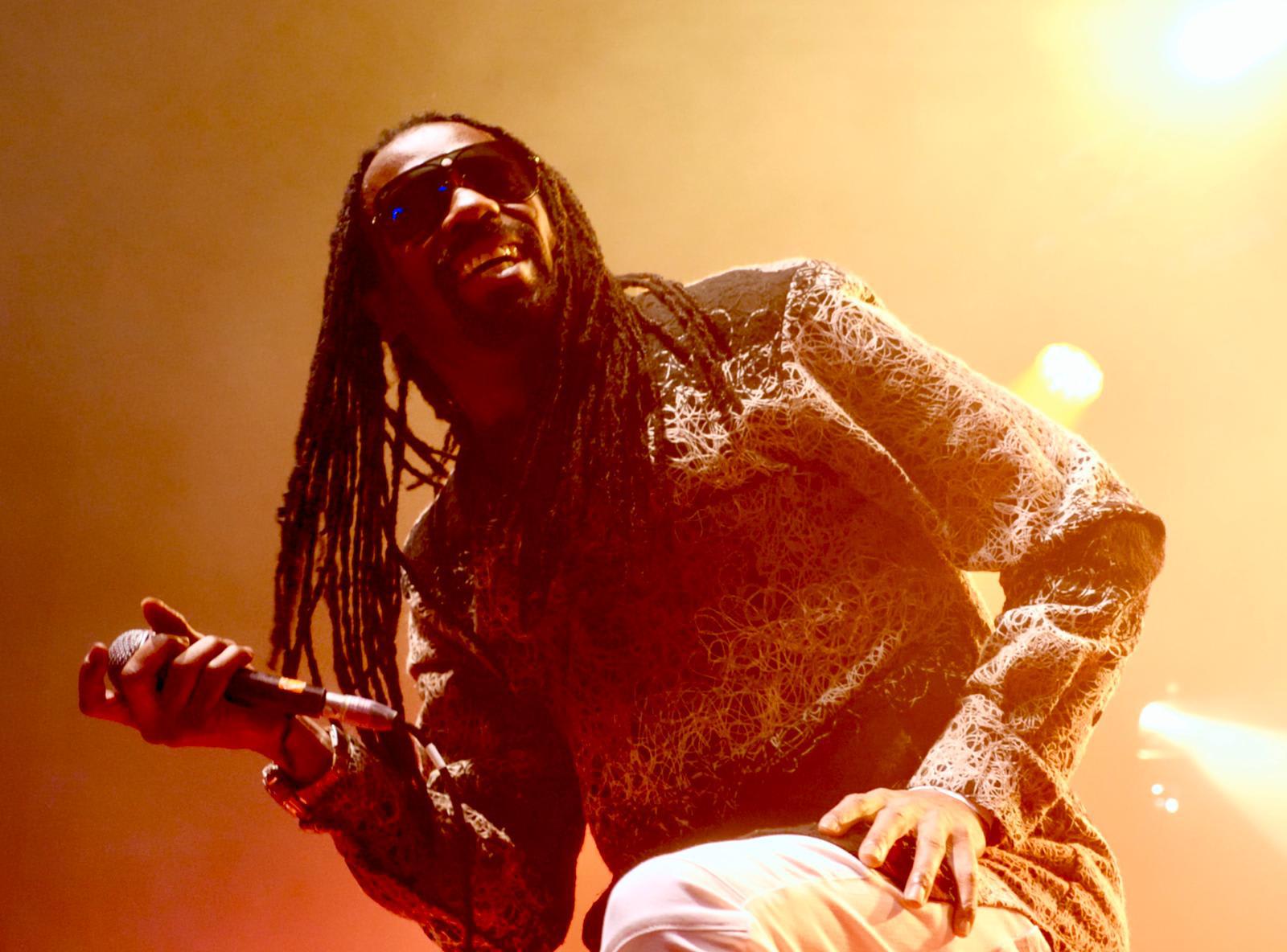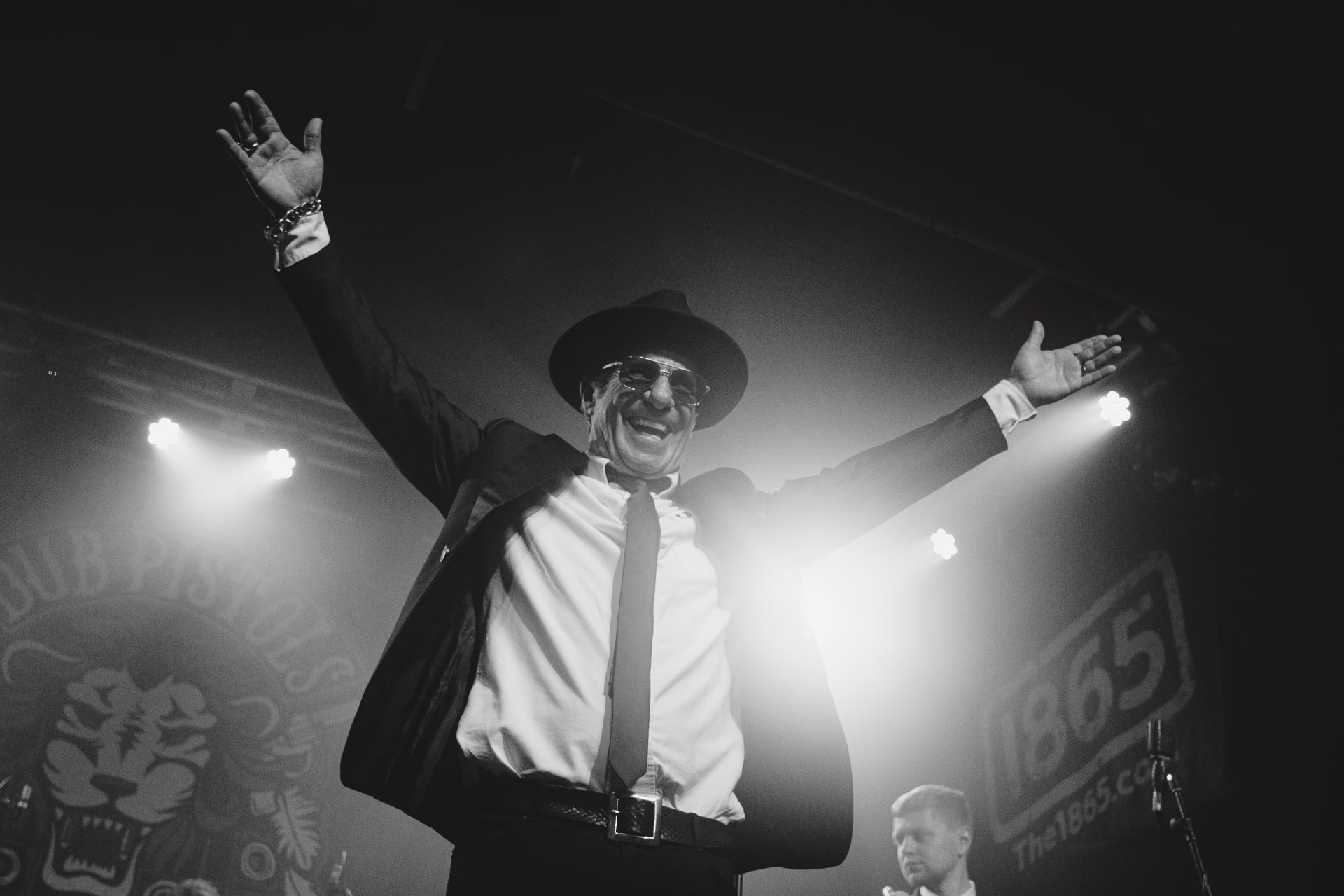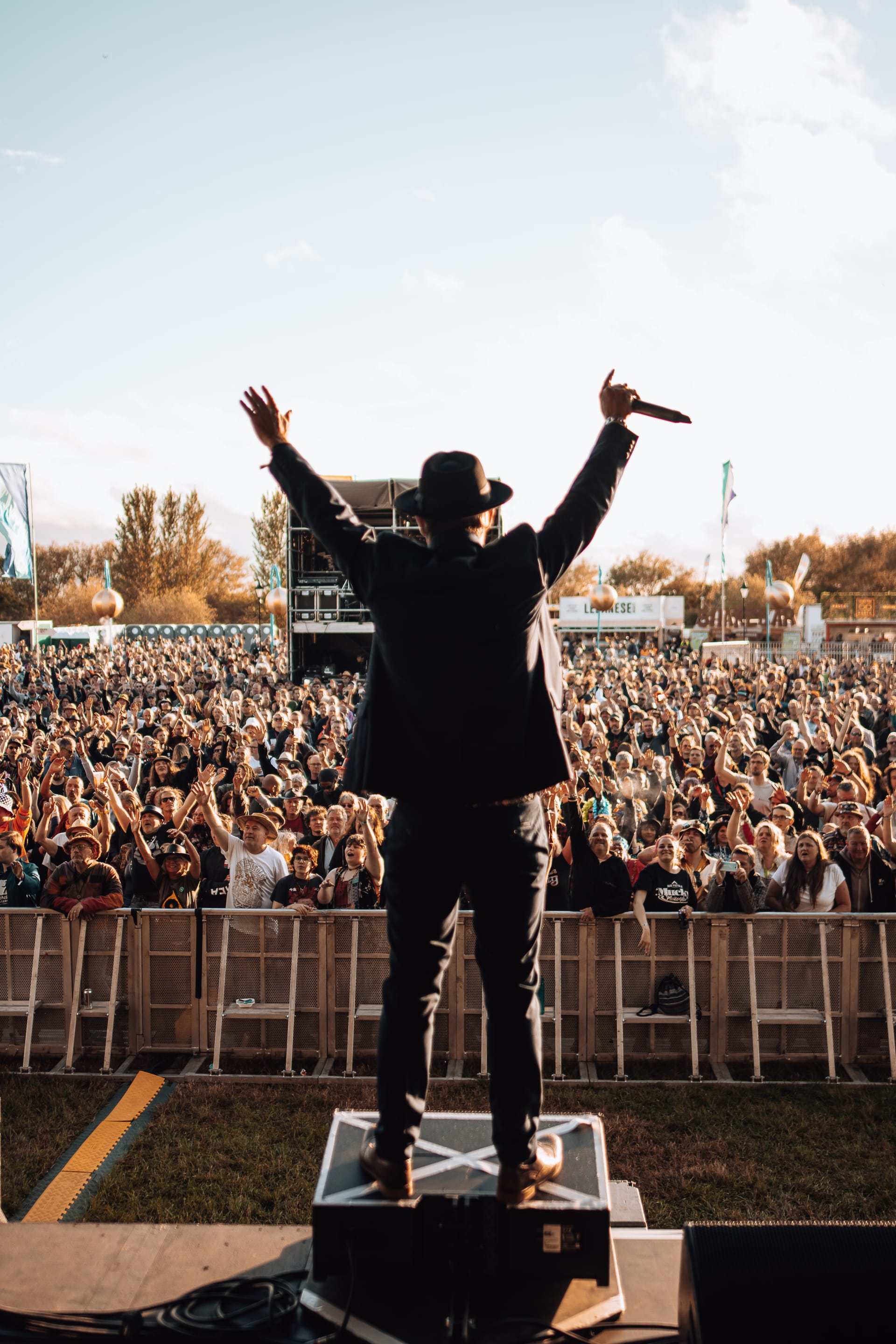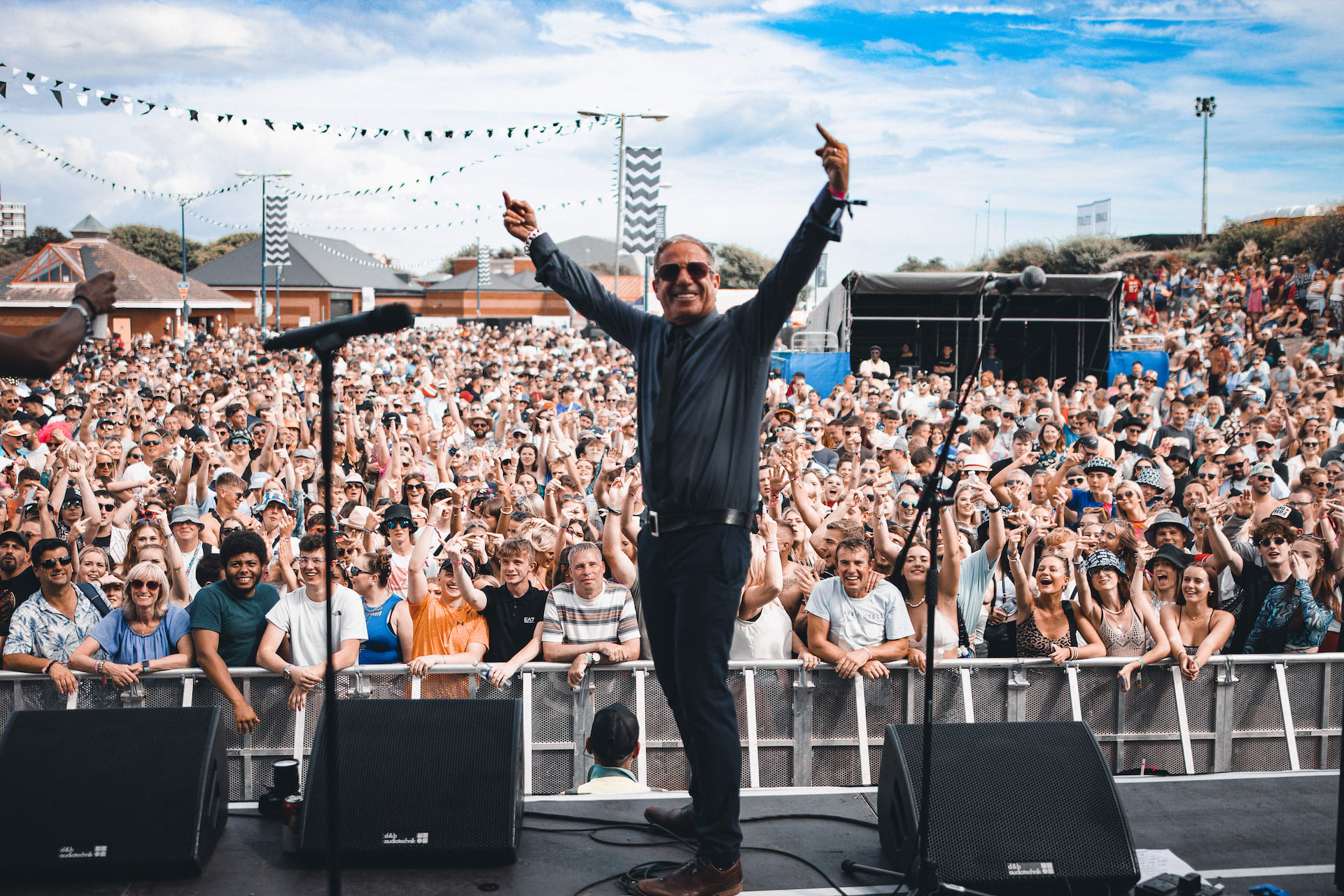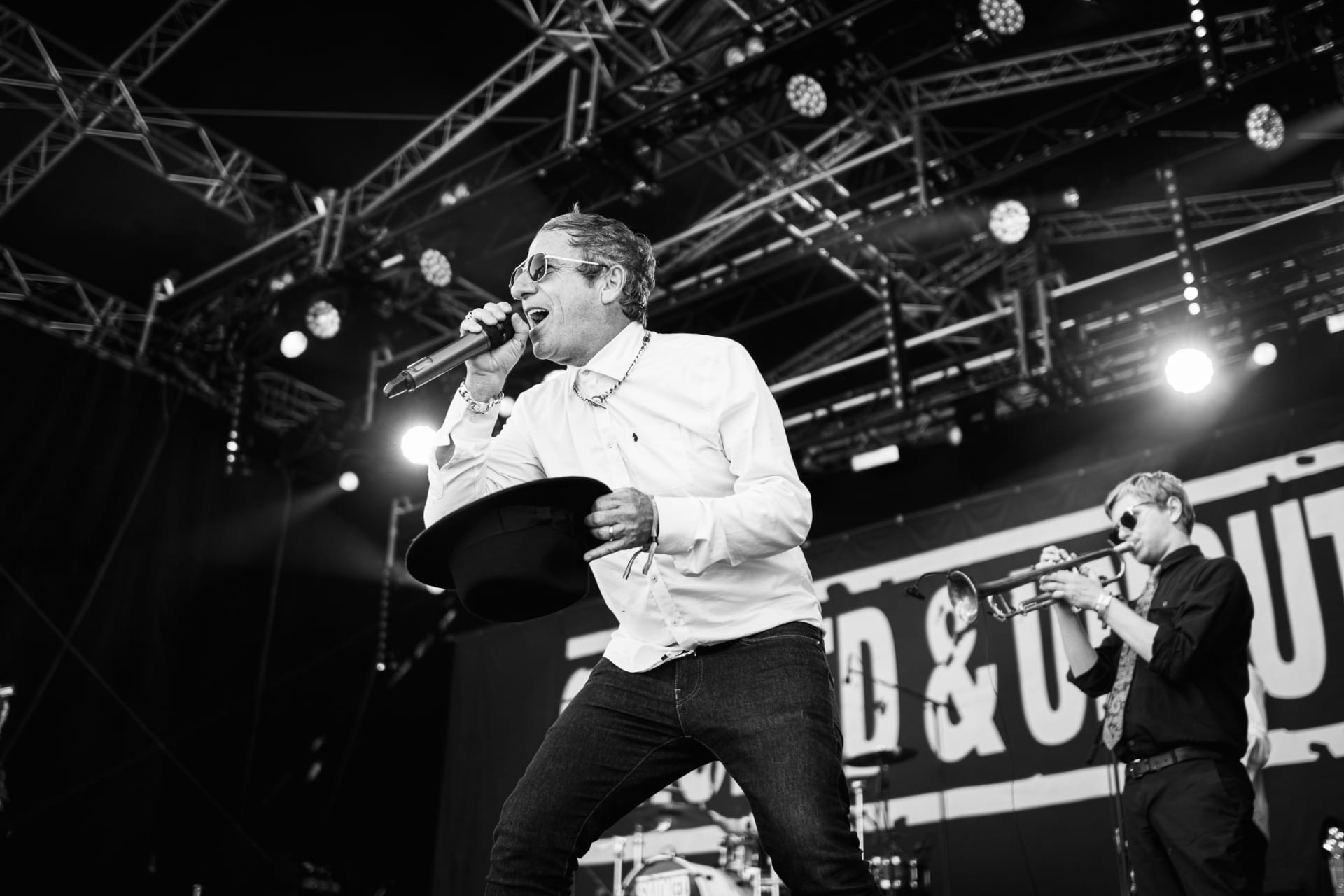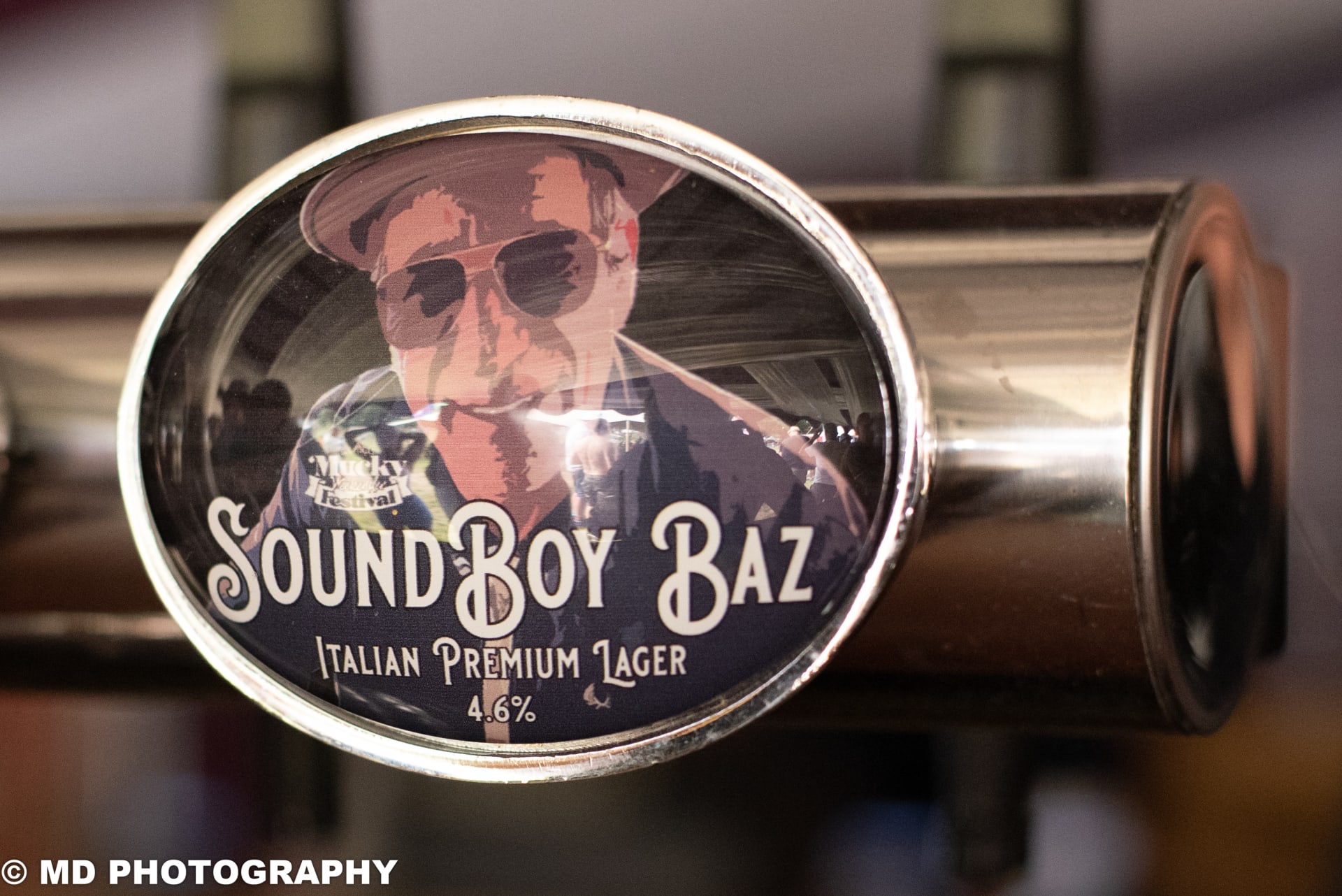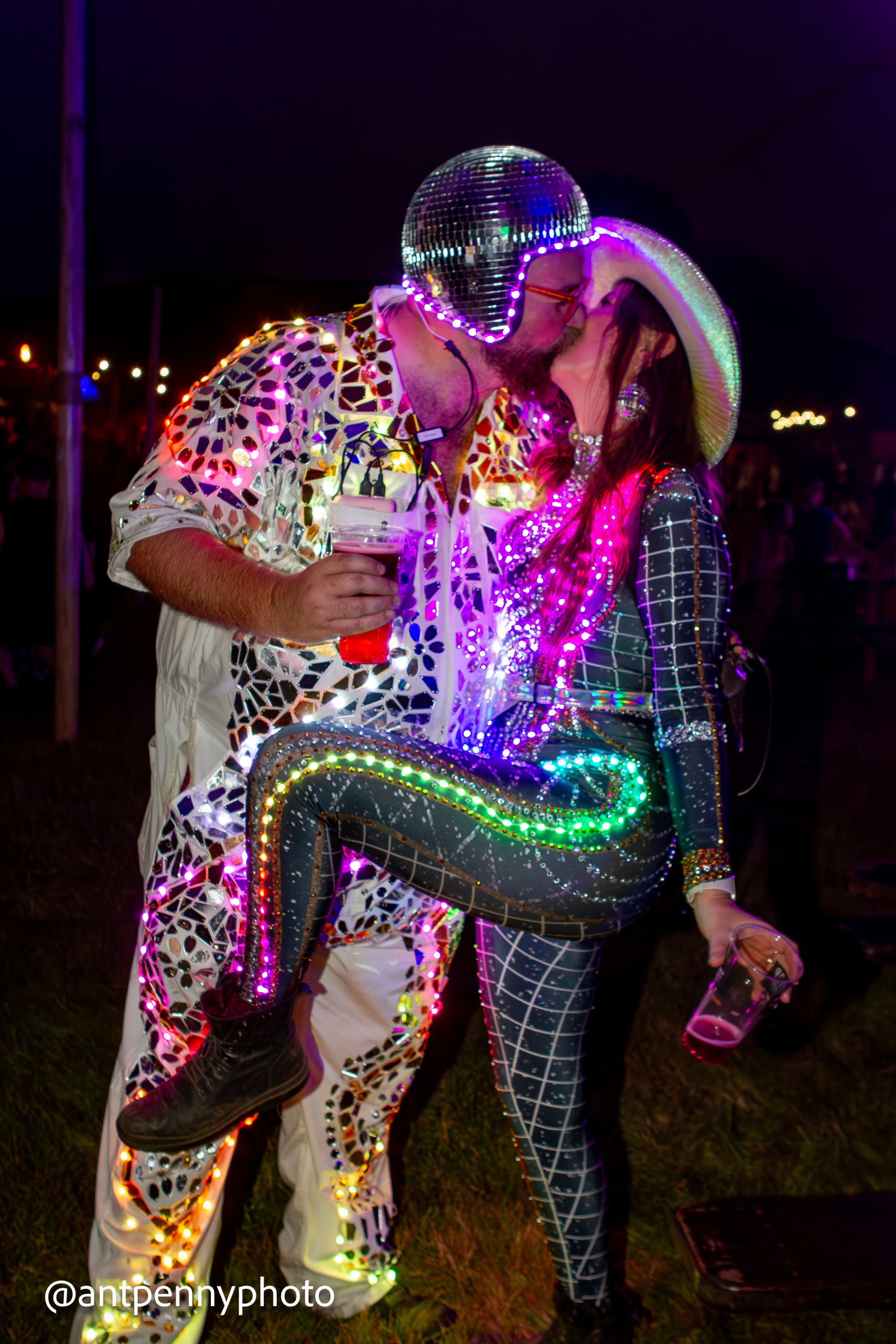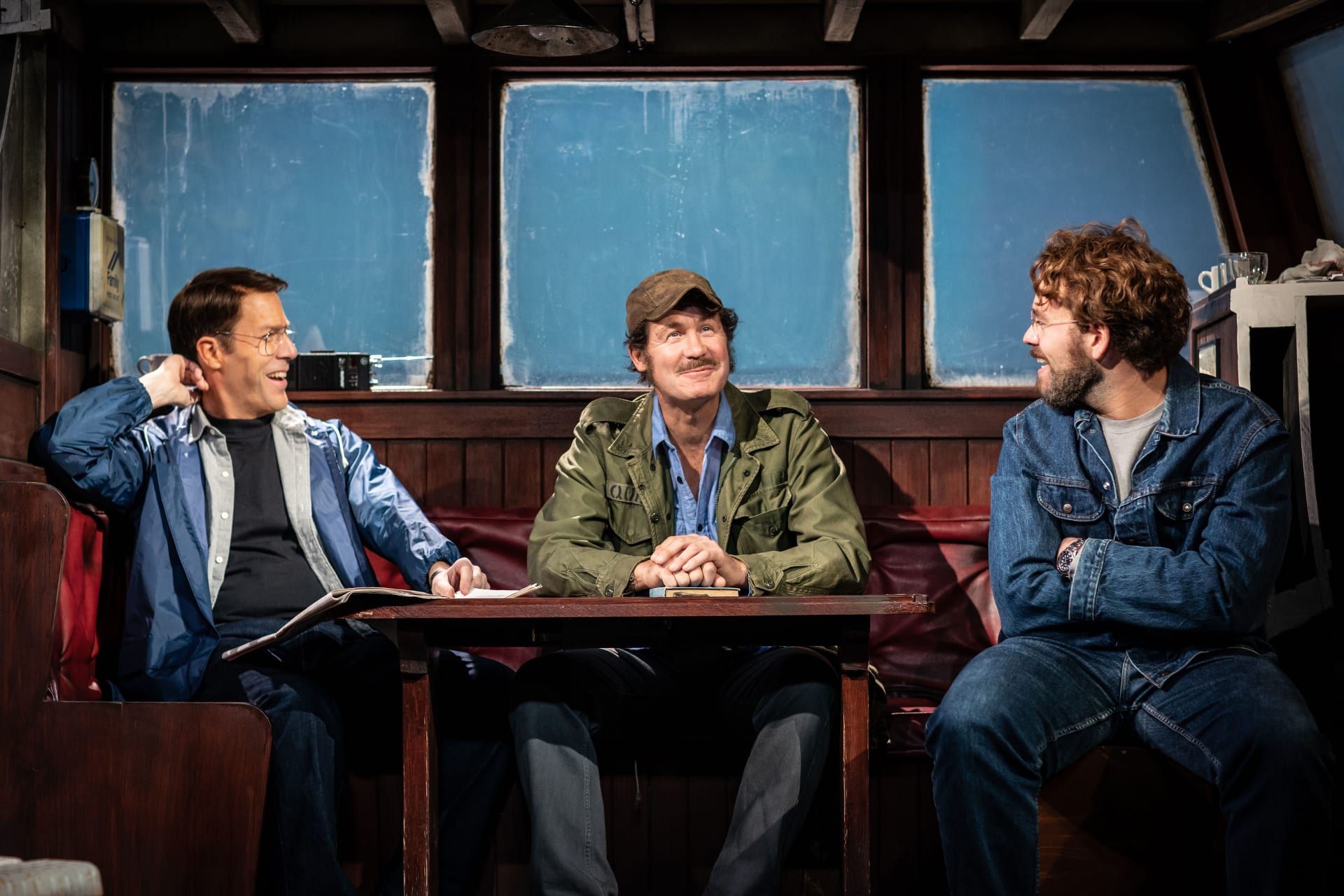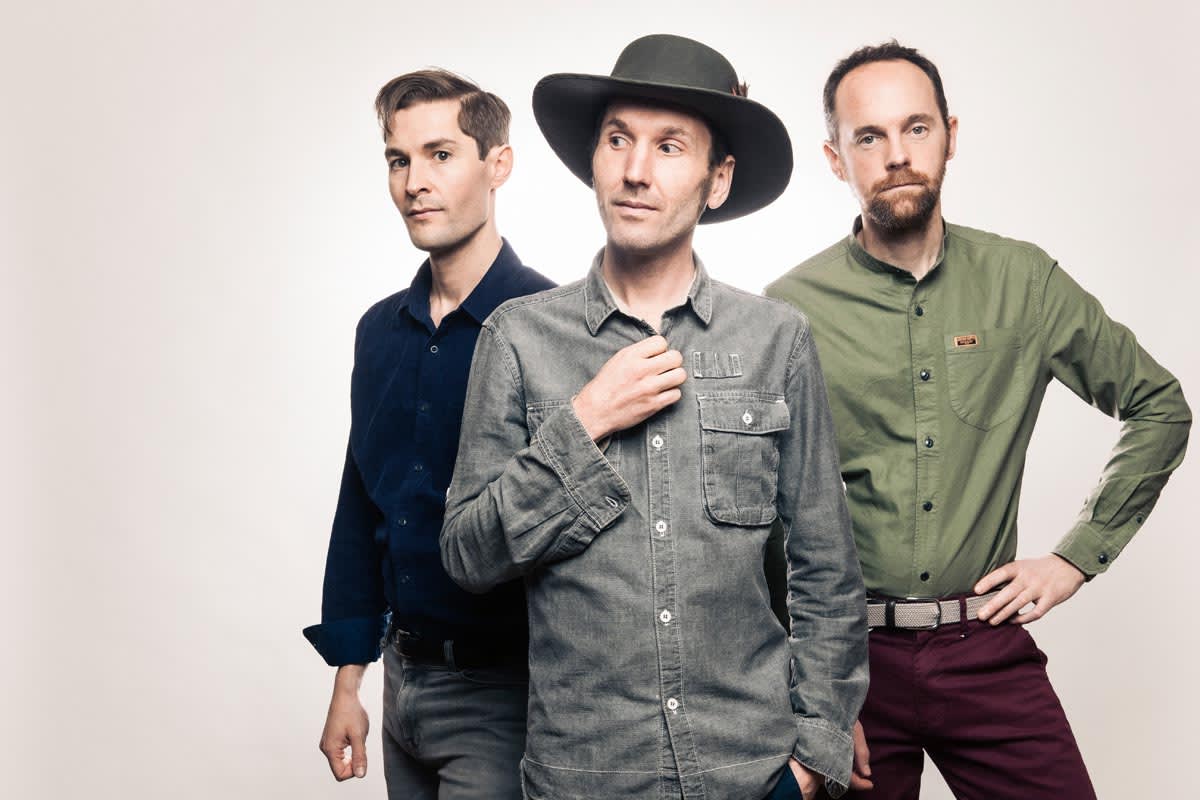Barry Ashworth founded Dub Pistols back in the 90s. He cites The Clash, The Specials, the Beastie Boys and Happy Mondays as his inspiration, resulting in a mash-up of beats which pretty much defy genre but have kept a loyal fanbase very happy for nearly thirty years. In addition, for the past four years he has raised money and awareness for mental health charity Tonic with an annual fundraiser, Barry’s Flying Circus; a wing-walking event which takes place in Cirencester each year. In 2019, as a band, Dub Pistols launched their own festival Mucky Weekender at Vicarage Farm near Winchester. This year’s instalment promises to be ‘entirely bonkers’. We wanted to know more…
Let’s start with Dub Pistols and how you came to form a band.
I was never meant to be a musician, I wanted to be a footballer – everybody wanted to be a footballer – and then I went to Ibiza, and I never came home. I started getting involved in in the music industry and running clubs. I started a band inspired by the Happy Mondays. I thought if they could do it, I'd give it a go.
My biggest influences growing up were The Specials and The Clash and then the Beastie Boys – I went through every genre going. You draw on all those influences, and you look back at the foundations of ska, the foundations of hip hop, whatever. I think everything goes round in circles, you know?
I've written 10 albums now, but I don't think there's one single song (even though they are original songs) which has something that I didn't take subconsciously or consciously from something I'd heard before. You can't help that you're influenced by something, and then you want to make it your own. I've always said every poet is a thief.
What really strikes me is not only has there been longevity to your career, but you’ve clearly had loads of fun and sustained relationships with people you’ve worked with. I think you must be very good at being a friend.
I think we've been very lucky in that we have an incredible fan base. We have made more mistakes, I think, than most bands and I've done everything I can to implode my career. But I wear my heart on my sleeve, and people have forgiven me my discretions and my flaws. They stuck with me. I call Dub Pistols the most successfully unsuccessful band and I think that's worked in our favour. If you hit the top, there's only one way to go, which is down. We did it in reverse and we're successfully, unsuccessful; just bubbling under gives us credibility. Now I think we are more of a cult thing than the next big thing.
If I had the media chasing me around, I would probably be in a lot of trouble. Whether it's been drink, drugs, alcohol abuse, I put myself through those situations. And now I'm a patron for Tonic Music for Mental Health.
Can you explain more about the charity?
Tonic is a charity I got involved in, I'm not even sure how many years ago now. I first did a show down in Portsmouth with Terry Hall, and I really believed in the foundations of what they were doing. I agreed to become a patron during covid because I think people really started to understand then that mental health was a major issue. I lost friends, musicians, through suicide during covid.
I knew people in the industry with substance and alcohol abuse issues because I've been in it: I know that those late nights and the touring and the drink and the drugs. The highs and the lows lead to massive depression and massive problems mentally. A lot of people suffer from anxiety just going on stage. I started Flying Circus, which is, I think, now, in its fourth year, and we've raised about £150,000.
I'm not a mental health worker. I'm someone who raises awareness and as much money as I can so professionals can actually do the job.
Surely there is a duty of care from the record labels.
You know what the industry's like. You’re just a cash cow. Look at Amy Winehouse – she should have been pulled out a long time ago. You're a commodity, and all the time you're making them money, they're going to keep pushing you on, even though they can see you're in trouble. And yes, they do have a duty of care, but sadly, it isn't there. For me, when someone goes silent that is the loudest they could possibly be. You know? When people start getting introverted and going into themselves, that's when there's a problem.
It's about looking out for each other, not just in the industry, but with friends around you. Social media is such a constant pressur,e and the world just seems so divided right now, but I will not give up on hope and I will not give up on love.
Tell us about your new music.
I've just done two albums. I've just finished an album with Freestylers, which is taking it back to where we started in ‘96 and bringing a clubby sound; the cast for this one is absolutely incredible. And then I'm working on a nearly finished, full-on live reggae album and doing a lot more vocals myself this time.
I've started my own label, Cyclone records. Our last album, Frontline, got to number three in the independent UK Official Charts. Everything about me now is DIY.
Lots of things have gone wrong but I generally feel that I have been the architect of my own downfall. I've never blamed a record label. I've never blamed anyone. I did everything myself, and I made the decisions to do what I did. So that's it, just put your hand up: ‘it didn't work, Barry, get back up and go again’.
That's so rare – have you always been a ‘Zen Master’?
Yeah, yeah. Don't get me wrong, I get really down, and I used to get really fed up, but it's like, I guess it's like [being] a boxer. You can get knocked down as many times as you want as long as you keep getting up off that canvas you’ve still got a chance. If you stay down, you're out. It's over. But as long as you can keep getting back up, no matter how many times they knock you down, you've got a chance.
We have to talk about Mucky Weekender which is coming up in September. For anyone who hasn’t been, what should they expect?
We're quite a boutique festival. This will be our fifth year and I would say it's probably one of the friendliest, most inclusive crowds you could possibly ever meet. Honestly, you could literally come alone, and you would leave with 1,000 new friends.
When you were building the festival what elements did you really want to include?
First of all, and most of all, it had to be inclusive. There isn't a VIP area. You’ll find our artists wander around the site – I think last year, General Levy was serving burgers from the burger van. It’s just about respect for each other, putting on the best party you possibly can, and making it as safe as you possibly can. The whole experience is one of enjoyment.
We get people flying in from all over the world and we try to cover as many different music genres as we possibly can. Obviously Dub Pistols are quite ska/reggae-lead, but we've got everything from funk, hip hop, disco, house, reggae; some fantastic live bands. And I know every band personally, so I know how good they are. We're not looking for mainstream pop artists. We're looking for fantastic musicians that will put on the best show possible.
Mucky Weekender 2024 is on 4-7 September. This year’s lineup includes Dutty Moonshine Big Band, The Dualers, Congo Natty, Don Letts, Bez and Rowetta, DJ Amiah and of course Dub Pistols. For further information and to book tickets visit
mucky-weekender.co.uk
For more information on Tonic Music for Mental Health, including details of Barry’s Flying Circus visit tonicmusic.co.uk

